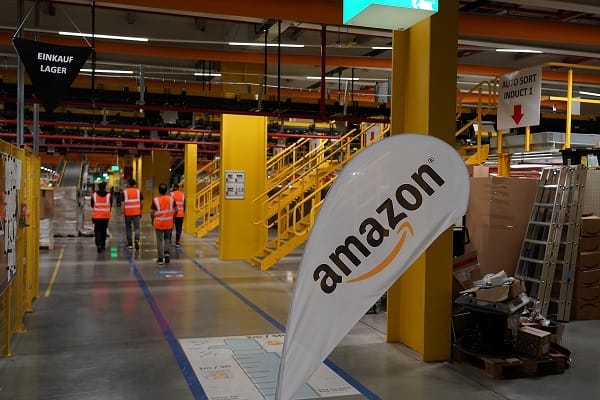In the United Kingdom, it’s estimated that Amazon claims somewhere between 30 and 35 percent of all e-commerce revenue. Combined, Apple and Currys claim the next 15 to 25 percent – which means that about half of all UK e-commerce revenue goes to just three companies. With those three giants claiming the lion’s share of the money, there isn’t a lot left over for everyone else. Even supermarket giant Tesco only receives about 5 percent of UK e-commerce revenue at the most – and Tesco is in fifth place.
In short, this isn’t an easy time to own a small business in the UK if you want to sell products online. Every year, the biggest online retailers claim more and more of the available revenue – and everyone else is left competing over a slice of the pie that continues to shrink.
So, is Amazon pushing small businesses out of e-commerce? That’s a question without a simple answer. Although it’s unquestionably the case that small businesses are finding it more difficult than ever to compete with the e-commerce giant, there will likely always be room for other small businesses to sell products online and do well.
The “wild west” days of e-commerce are long over, and the biggest online retailers get bigger with each passing year. If you want to compete with Amazon as a small business owner, it’s not going to be as simple as putting products online and waiting for customers to roll in. Here’s what you need to do in order to make your small online business a successful one.
Sell products that Amazon doesn’t sell
One of the most effective ways to compete with Amazon as a small business is by selling products that Amazon doesn’t sell and won’t ever offer. Some of the things that aren’t sold on Amazon include paintball guns, CBD oil and vaping products. You can ignore Amazon completely if you sell products that aren’t available there. Small UK vape shops like Cloud City, for example, have nothing to fear from Amazon.
Establish a strong local presence
People buy from Amazon because doing so has a number of compelling benefits such as low prices, relatively quick shipping and a painless return process. One thing that Amazon doesn’t have, though, is a local presence. When UK consumers buy from Amazon, they’re not supporting a business in their community – they’re not even supporting a business in their own country.
With that in mind, it can be very effective for small e-commerce businesses in the UK to emphasise the fact that they’re local. Many people do want their money to remain within their communities as much as possible. As a local business, your advertising can also call attention to your quick local delivery times. If it’s feasible to do so, you might even consider offering same-day delivery for orders placed before a certain time on business days. People love instant gratification.
Remove friction from the buying process
Many of the products that Amazon sells are actually available for less elsewhere – and yet, people buy those products from Amazon anyway. Why is that? One of the biggest reasons is because Amazon makes the buying process so easy. Once you’re logged in, you can buy a product from Amazon with just one click. When people buy from Amazon, they don’t have to worry about typing their address, and they don’t have to worry about shipping fees. The entire process of buying an item takes only a few seconds.
Although it might not be practical or possible for your small e-commerce business to offer one-click buying, it would be very wise for you to audit your checkout process and ensure that it’s as frictionless as possible. If you can eliminate even one tap or click from the process, your sales will increase – every additional step in the checkout process is an opportunity for the customer to change his or her mind.
One easy way to reduce friction from your checkout process is by shipping all products for free if you can. That way, people don’t have to think about shipping costs when checking out. If you do ship orders for free, place prominent messaging on your site to make sure that customers are aware.
It’s also a good idea to add a PayPal checkout function to your site. Many people have PayPal accounts anyway, and checking out with PayPal means that customers won’t have to worry about typing their addresses or payment information.
Add a personal touch when fulfilling orders
The order fulfilment experience is one of the few areas in which Amazon can actually be beaten. If you’re a regular Amazon customer, you know what it’s like to receive damaged products in beat-up boxes and returned products repackaged and sold as new. Amazon does make the return process as hassle free as possible, but many of the situations that result in returns could have been avoided with a little care. You can exercise that care and wow your customers with a better fulfilment experience. Package your products with a little extra effort and consider including a personal touch such as a free sample or a handwritten thank-you note.
Sell something that people can only get from you
One of the most effective ways to thrive as a small online business is by establishing your own distinct brand identity and selling something that people can only get from you. Many luxury fashion brands, for instance, only sell products through their own websites and brick-and-mortar stores. People know that if they want to buy those products, they need to get them directly from the makers. If you can establish that level of brand strength, you can avoid the Amazon treadmill entirely.
Use a brick-and-mortar operation to stabilise revenue
One of the reasons why it’s so difficult to establish a foothold in the e-commerce industry as a small business owner is because it requires an investment – and it’s difficult to find the capital to invest in a business that isn’t earning money yet. One way to get around that problem is by establishing a brick-and-mortar business before you begin selling products online. That way, you can use the revenue from your physical store to keep your operations stable while you work to build your online presence.






Leave a Comment